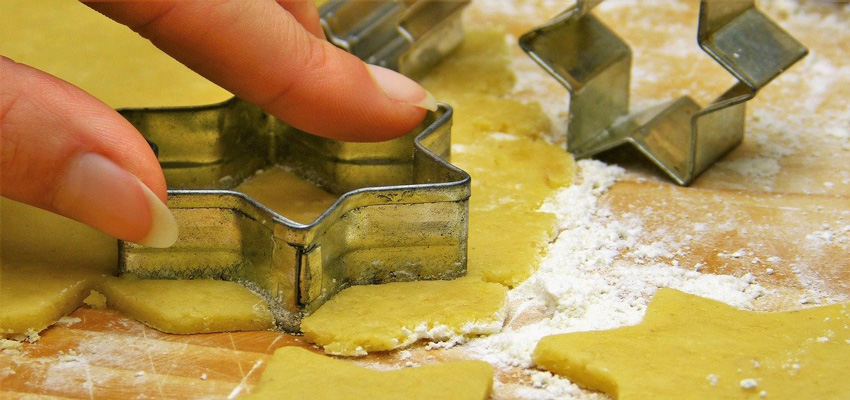In the nationwide monitoring plan 2018, increased levels of shigatoxin-forming Escherichia coli (STEC) were detected in flour samples. The BfR has issued a statement in this context.
The background was the results of the nationwide monitoring plan 2018, in which flour samples from mills were examined for the presence of STEC. Here, wheat, spelt and rye flours were sampled. STEC was found relatively frequently during the study. In the evaluation, wheat flours were preferred as the most important type of flour. The evaluation of scientific work and examination data from the official food control authorities showed that STEC was detectable in a considerable proportion (10 to 30 %) of the flours. In the observed infections attributed to STEC in flour, raw cookie dough played an important role. Which child (and adult) does not even like to eat the dough when baking cookies at home? Raw cookie dough is currently also offered as a trendy food and is even advertised for raw consumption.
There are several possible sources of STEC in flour, and several stages of flour production are possible. It was considered probable that the contamination usually occurs already in the field, e.g. by wild animals and applied organic fertilizers.
In its statement, the BfR recommended concrete measures for risk minimisation to the producers of flours, baking mixes and ready-made doughs.
Consumers can also find hygiene tips in the publication for the correct handling of flour and dough in the home kitchen:
- always store and process flour, baking mixes and raw dough separately from other foods.
- process finished doughs as quickly as possible or store them in the refrigerator.
- consume doughs and baked goods only after they have been completely heated through.
- clean kitchen utensils and surfaces thoroughly after contact with flour, baking mixtures or raw dough.
- wash and dry hands thoroughly after processing flour, baking mixes or raw dough (quoted from report)
The European food laboratories of the AGROLAB GROUP also carry out extensive microbiological tests on cereals, flours and bakery products and of course tests for E.coli and the toxin-forming variants, also known as EHEC pathogens.
Read more:
Author: Dr. Frank Mörsberger

 Contact
Contact

 Contact
Contact Career
Career